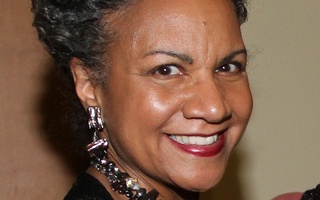One Interstate supervisor "comes in for one minute a day, doesn't say anything, then leaves," the worker says.
The deeply entrenched relationships between Harvard and its contractors like Interstate demonstrate just how much Harvard values continuity over aggressive bid-seeking.
In awarding contracts for reunions and Commencement-related events, the University treats many companies like old friends.
Instead of submitting bids, outside companies, which are used year in and year out for the same jobs, enter directly into price negotiations as if they were in-house Harvard departments guaranteed the work. The arrangement effectively serves to screen some companies from bidding on Harvard contracts.
But Robert L. Dwyer, a buyer in Harvard's purchasing office, says the University "realistically renegotiates" its contracts with its reunion companies each year and that new contracts are considered annually. "We keep an eye on the market," Dwyer says.
Asked to cite an example, Dwyer says Harvard turned to bidding last year after one of the companies it had long employed went out of business. But outside bids were higher than the rate current contractors were charging, Dwyer says, and so he allowed the work to be absorbed by existing workers.
The manager of Roland L. Appleton Inc., a Boston chair rental firm hired for Commencement, says "quite a few" firms which have worked for Harvard in the past are "automatically hired" each year, and that all these firms must do is set a price with Dwyer.
Appleton's manager says in the 20 consecutive years his firm has served Harvard he has never submitted a bid. He says firms with long histories of service to Harvard are not asked to submit annual bids for their work.
The manager for Camelot Rentals, another local chair firm, says Camelot submitted a bid to Harvard but that it was turned down. "The impression I get from many schools is that if what they're doing works, they basically tend to stay with what they're doing," the manager says. "If it works, why fix it?"
While contractors like Interstate setup chairs by day, Harvard continues a tradition of paying students to guard them by night.
Roger J. Landry '92-'93 and Justin Gray '96, two Harvard students paid to guard the chairs and tents set up during the week preceding Commencement, say there is really not all that much to their job, for which they are paid $7.50 per hour.
"This job is just one of those thousands of sinecures or 'nothing jobs' created for students," Landry says.
Gray and Landry both says their task is merely to watch the tent and chairs, even though a Harvard security guard is paid over-time wages to do the same thing simultaneously.
Moreover, Harvard police are also directed to make frequent sweeps of Tercentenary Theatre, making Harvard's rented chairs some of the best-protected folding seats around.
Many local caterers serve the same reunion functions each year. In these cases, competition appears to be stiffer, at least in part because alumni, and not the University, hire caterers and often are not as locked in to the same contractors.
Read more in News
Coalition Expects SupportRecommended Articles
-
Reunion Gifts Drive Week Of PartyingInside Harvard University, there is a corporation within a corporation--nameless yet not faceless, a big spender yet exceedingly profitable. That
-
CROWDED PROGRAM OF EVENTS FACES 25-YEAR CLASS TODAYMembers of the class of 1900, back to Cambridge for their twenty-fifth reunion, face a crowded program today and tomorrow.
-
Reunions SuckThis weekend marks the twenty-fifth anniversary of the Harvard Gay & Lesbian Caucus. The Crimson Editorial Board has taken this
-
 Cherished Friendships and the Ritual of Reunion
Cherished Friendships and the Ritual of Reunion -
 Staying in Touch
Staying in Touch













